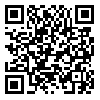Volume 6, Issue 3 (August 2019)
Avicenna J Neuro Psycho Physiology 2019, 6(3): 123-132 |
Back to browse issues page
Download citation:
BibTeX | RIS | EndNote | Medlars | ProCite | Reference Manager | RefWorks
Send citation to:



BibTeX | RIS | EndNote | Medlars | ProCite | Reference Manager | RefWorks
Send citation to:
khanjari C, Khajevand Khoshli A. The Effects of Transactional Analysis on Couple Burnout in Obese Women with Type 2 Diabetes. Avicenna J Neuro Psycho Physiology 2019; 6 (3) :123-132
URL: http://ajnpp.umsha.ac.ir/article-1-166-en.html
URL: http://ajnpp.umsha.ac.ir/article-1-166-en.html
1- Health Psychology Department, Tonekabon Branch, Islamic Azad University, Tonekabon, Iran.
2- Department of Psychology, Gorgan Branch, Islamic Azad University, Gorgan, Iran. ,khanjaricinderella@gmail.com
2- Department of Psychology, Gorgan Branch, Islamic Azad University, Gorgan, Iran. ,
Abstract: (4223 Views)
Introduction: Obesity and obesity-related diabetes became epidemics globally. Obesity and diabetes, as one of its associated illnesses, could change family reactions and interactions. Therefore, diabetes is considered a family matter that, like other chronic diseases, affects marital relationships.
Objectives: The present study investigated the effectiveness of transactional analysis on couple burnout in obese women with type 2 diabetes.
Materials and Methods: This was a quasi-experimental study with a pre-test/ post-test and follow-up as well as a control group design. The study population consisted of all married obese women with type 2 diabetes who were members of the Gonbad-e Kavous Diabetes Association in 2018. Of them, 40 persons were selected and randomly assigned to the experimental and control groups (20 patients per group). Then, the experimental group received transactional analysis intervention in 10 two-hour sessions, one session per week. The controls received no intervention during the research period. The research instrument was the Pines Couple Burnout Measure (CBM), which was completed by study participants in the Pre-test, Post-test, and follow-up phases. The obtained data were analyzed by repeated-measures Analysis of Variance (ANOVA) and Bonferroni posthoc test in SPSS.
Results: The repeated-measures ANOVA results indicated that transactional analysis could significantly decrease the couple burnout and its components, i.e. physical exhaustion, emotional exhaustion, and mental exhaustion in the experiment group participants in the Post-test and follow-up phases, compared to the controls (P<0.01). The effect size of the treatment was 73% on couple fatigue, 67% on physical exhaustion, 74% on emotional exhaustion, and 60% on mental exhaustion.
Conclusion: According to the study results, psychologists and family counselors are recommended to implement transactional analysis as an appropriate intervention to reduce the marital problems of obese individuals with type 2 diabetes.
Objectives: The present study investigated the effectiveness of transactional analysis on couple burnout in obese women with type 2 diabetes.
Materials and Methods: This was a quasi-experimental study with a pre-test/ post-test and follow-up as well as a control group design. The study population consisted of all married obese women with type 2 diabetes who were members of the Gonbad-e Kavous Diabetes Association in 2018. Of them, 40 persons were selected and randomly assigned to the experimental and control groups (20 patients per group). Then, the experimental group received transactional analysis intervention in 10 two-hour sessions, one session per week. The controls received no intervention during the research period. The research instrument was the Pines Couple Burnout Measure (CBM), which was completed by study participants in the Pre-test, Post-test, and follow-up phases. The obtained data were analyzed by repeated-measures Analysis of Variance (ANOVA) and Bonferroni posthoc test in SPSS.
Results: The repeated-measures ANOVA results indicated that transactional analysis could significantly decrease the couple burnout and its components, i.e. physical exhaustion, emotional exhaustion, and mental exhaustion in the experiment group participants in the Post-test and follow-up phases, compared to the controls (P<0.01). The effect size of the treatment was 73% on couple fatigue, 67% on physical exhaustion, 74% on emotional exhaustion, and 60% on mental exhaustion.
Conclusion: According to the study results, psychologists and family counselors are recommended to implement transactional analysis as an appropriate intervention to reduce the marital problems of obese individuals with type 2 diabetes.
Article Type: Research Article |
Subject:
Special
Received: 2019/09/11 | Accepted: 2019/10/23 | Published: 2019/12/8
Received: 2019/09/11 | Accepted: 2019/10/23 | Published: 2019/12/8
Send email to the article author
| Rights and permissions | |
 |
This work is licensed under a Creative Commons Attribution-NonCommercial 4.0 International License. |








